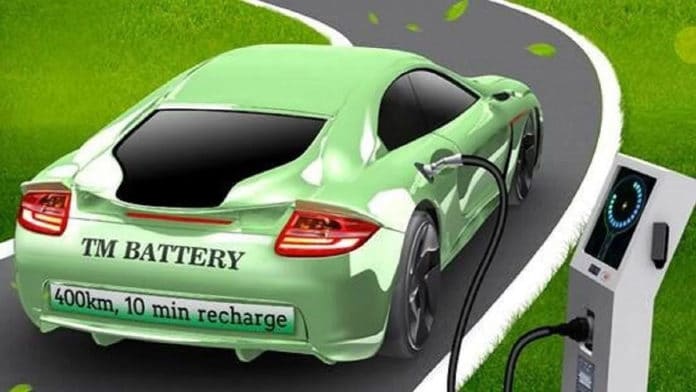Range anxiety, the fear of running out of power before you can charge an electric vehicle, could soon be a thing of the past. A team of Penn State engineers is working on lithium-iron-phosphate batteries that offer EV a range of 250 miles (402 km) with the ability to charge in 10 minutes.
The key to long-life and rapid recharging, experts explain, is the battery’s ability to quickly heat up to 140 degrees Fahrenheit (60-degree Celsius) for charge and discharge and then cool down when the battery is not working. The very fast charge allows the team to downsize the battery without worrying about the range anxiety.
“We developed a pretty clever battery for mass-market electric vehicles with cost parity with combustion engine vehicles,” said Chao-Yang Wang, director of the Electrochemical Engine Center at Penn State. “There is no more range anxiety, and this battery is affordable.“
The self-heating battery uses a sheet of nickel with one end attached to the negative terminal and the other extending outside the cell to create a third terminal. Once electrons flow, it rapidly heats up the nickel foil through resistance heating and warms the inside of the battery.
Once the battery’s internal temperature is 140 degrees F, these smaller batteries can produce a large amount of power upon heating – 40-kilowatt hours and 300 kilowatts of power. An electric vehicle fitted with this battery could go from zero to 60 mph (97 km/h) in 3 seconds, said Wang.
The lithium-iron-phosphate batteries do not contain any of the expensive and critical materials like cobalt. Both anode and cathode are made of safe, light, and inexpensive materials. Also, because of the self-heating, uneven deposition of lithium on the anode – which can cause lithium spikes that are dangerous – is not an issue
“This battery has reduced weight, volume, and cost,” said Wang. “I am very happy that we finally found a battery that will benefit the mainstream consumer mass market.“
According to the researchers of the project, the newly developed battery should be good to last two million miles in its lifetime.
“This is how we are going to change the environment and not contribute to just the luxury cars,” said Wang. “Let everyone afford electric vehicles.“
Penn State engineers are not the only team working on improving the range, cost, and charging times of EV batteries. Recently, we informed you about Toyota’s plans to launch a solid-state battery EV this year that can charge in 10 minutes.
